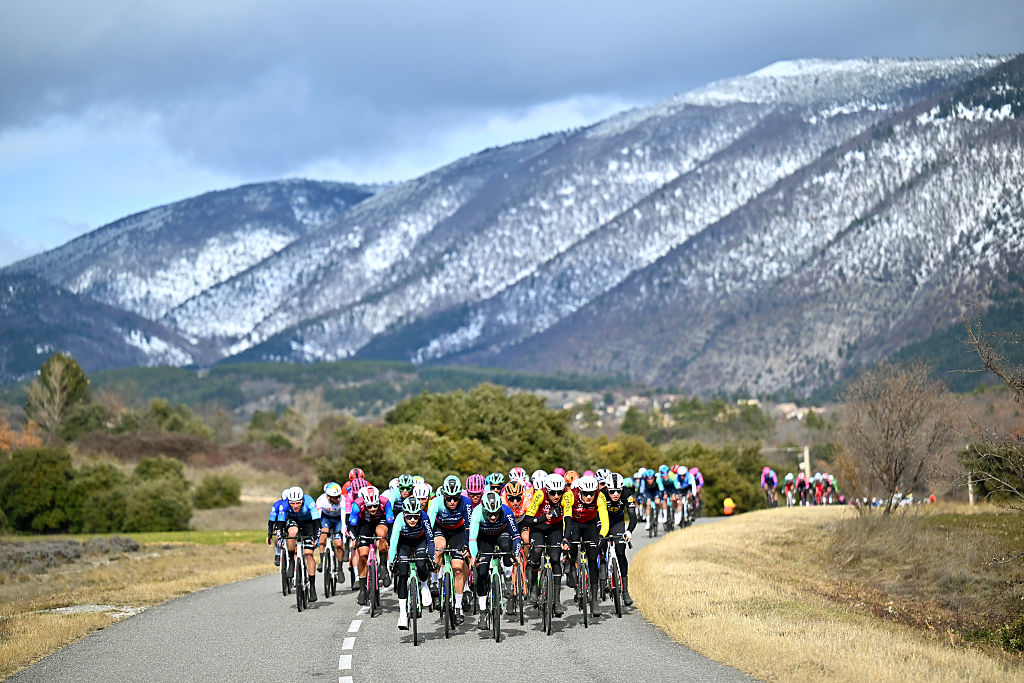The day after the attack: How Contador won in Fuente Dé
Vuelta riders and directors analyse Contador's victory
The latest race content, interviews, features, reviews and expert buying guides, direct to your inbox!
You are now subscribed
Your newsletter sign-up was successful
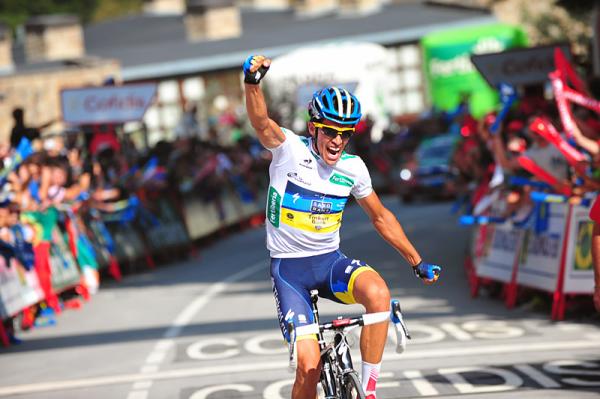
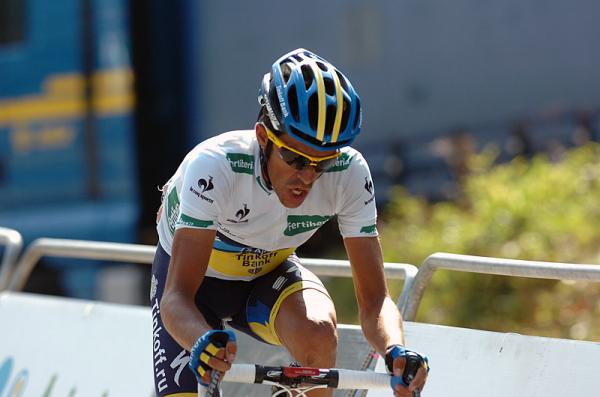
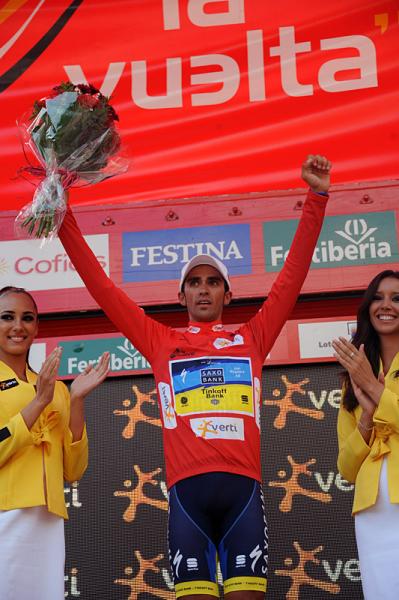
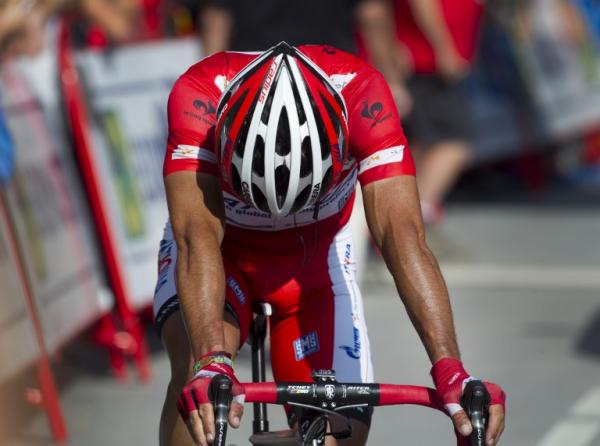
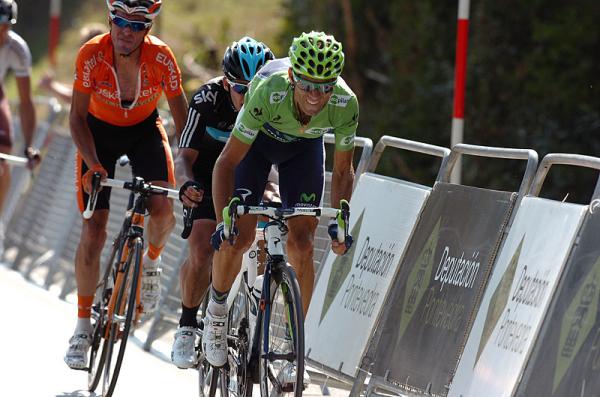
Today it's impossible to find a Spanish newspaper which isn't full of praise for the stage - and possibly race - winning attack on Thursday by Alberto Contador (Saxo Bank-Tinkoff Bank) to Fuente Dé. The comparisons to Hinault, Pedro Delgado and even Eddy Merckx are too numerous to count. But how did it actually happen?
Contador's move across to a group of 19 escapees on the ascent of the second category Collado de La Hoz, 51 kilometres from the finish line, and dropping both race leader Joaquim Rodriguez (Katusha) and Alejandro Valverde (Movistar) was - with the benefit of hindsight - one of the most decisive moments of the stage, if not the entire Vuelta a España.
From then on, Contador and his teammates Bruno Pires, Jesus Hernandez and finally Sergio Paulinho, with considerable help from Astana's Paolo Tiralongo, a friend of the Madrileño's, drove the breakaway towards Fuente Dé and the gap opened slowly but steadily on Purito and Valverde.
"We heard on the radio, '20 seconds when they came off the [Collado] climb'," Saxo Bank sports director Bradley McGee told Cyclingnews at the start of stage 18, "and we all knew everything was depending on this next time split, 'cause we would know if Rodriguez had been able to pull it back. And it went up to 25 seconds and we all went ‘Ooh!'.
"Once we hit the valley floor, it was man against man, Paulinho and Contador versus [Katusha's Alberto] Losada and Rodriguez. And it went out a bit more, bit more and then it just exploded."
As McGee explained when the 19 had got away over the Collado de La Hoz, there was actually another break, with Saxo's Bruno Pires in the move, even further ahead.
"The plan was to have somebody in a break and when the first move went just before the feed, Bruno did a fantastic job of getting in there. I'm surprised that Katusha let anything go with one of our riders in it. It was an opportunity for us."
The latest race content, interviews, features, reviews and expert buying guides, direct to your inbox!
"We knew it was a hard stage," Paulinho told Cyclingnews, "but we never imagined what would happen, did.
"When it [the gap for the Pires break] came down to a minute or so" - after Garmin-Sharp had chased - "then everybody in the bunch started attacking like crazy, and that's when the 19 got off the front.
"I went with Jesus and got on somebody's wheel, and then when we got to the climb [of Collado de la Hoz] that's when Alberto got across to us.
"The climb was very hard, and the race was going mad anyway, from the start." - with an earlier attack seeing Valverde and Contador drop Rodriguez in the first 40 kilometres.
"We had three riders ahead and we did the maximum possible to keep him up there," continued Paulinho. "The last five kilometres drop down off the climb were very hard, and then I went all out.
"On the Collado Alberto was able to talk to the guys ahead by radio, tell them to push it out as far as possible and then go for it himself," added McGee.
As for Collado de La Hoz, "We knew there were some opportunities there, there was a tricky descent [through a canyon] and then along the valley floor, we definitely had some ideas there.
"I also think that climb was under-rated too. I did a recon about a month ago and I could see that. We knew there would be an opportunity there."
According to Paulinho, the team had originally planned to attack with three kilometres to go on the Fuente Dé. "We never imagined this was going to happen.
"But as Rodriguez said, you never know what's going to happen in cycling. The racing never stopped for five minutes and I think a lot of people were very tired."
Other factors that influenced too, was the fact it was straight after a rest day, where riders are often a little bit off their best following a break in racing, with a flat-out start from the gun.
"There were bodies everywhere, like somebody stuck their hand in a beehive," is how Garmin's sports director Johnny Weltz described the chaos caused by the mass attacks from the start of the stage.
"Contador could see Rodriguez was already in trouble right from when he dropped him early on [in the first hour with Valverde] and when the shit hit the fan, it all developed from there."
"It was hard from the start - left, right, up, down all along the coast," Steve Cummings (BMC) told Cyclingnews. "Big groups were going, splitting and splitting, 40 or 50 guys getting away.
"Then we did a climb, a small climb, and there were like 20 of us in it, and I thought ‘right that's the breakaway, because it had me [teammates] Phil [Gilbert] and [Alessandro] Ballan.
"Then we did this climb full gas and then I looked round and Alberto and Valverde were there! You know it was really hard because the GC guys were up there right from the start.
"Then when the break [with Pires] went we all thought ‘ok, that's it, a nice ride to the finish'. And the next thing is that Garmin started riding and then it was just...terrible. Really hard, especially after the rest day.
"There was a really tough little climb, then that technical descent, little roads - it was terrible, full-on all day. [I remember] the guys' faces in the peloton: I don't want to name names but one guy was almost crying."
"But that first split was [because] really they [Katusha] were caught with their pants down." says McGee "The [Saxo Bank] boys were together and organised and able to make a call. The whole peloton was just that sleepy after the rest day and that is when you've got to be sharper."
"The problem is you have a rest day and some people suffer from that," added Weltz. "People were hurting because we started off so fast, there were so many attacks, they were just ready to get out the way.
"I think Contador's season has had an effect too. He's recovering faster, he's fresher and that really helped him."
"Alberto had rocket legs, he suffered his way up that last climb in the hurt box but never faltered," concluded McGee. "Days like that don't happen often, but when they do, they're appreciated, It was something special."
Alasdair Fotheringham has been reporting on cycling since 1991. He has covered every Tour de France since 1992 bar one, as well as numerous other bike races of all shapes and sizes, ranging from the Olympic Games in 2008 to the now sadly defunct Subida a Urkiola hill climb in Spain. As well as working for Cyclingnews, he has also written for The Independent, The Guardian, ProCycling, The Express and Reuters.

